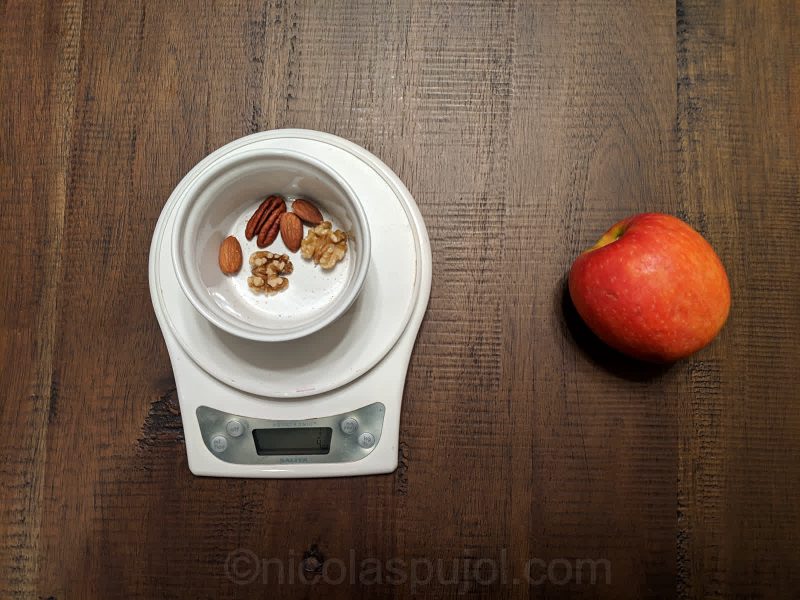We explore the 16/8 time restricted eating concept, and compare it with constant feeding in modernity, fasting mimicking diet (FMD), and water fast.
In the billions of years of evolution since the start of life on earth, many changes have happened. We evolved from single cell organisms to multi-cells, then to the variety of species which exist today. On this scale of time, it may appear as if DNA can change rather quickly. But in the scale of a thousand years, our human genome’s rate of change has been minimal. Our environment, however, has been altered much more significantly during the same time frame. A definition of fitness is the level of matching between life and its environment. So if one changes faster than the other, there has got to be some problems.
In developed countries, there is more food available than ever before, while most individuals carry on fewer physical tasks to expend energy. Some eat in a continuum during the day, from the time they wake up to a late night snack right before bedtime. This new environment is giving us the ability to feed on a constant basis, while our organs were designed for times to eat, to digest, and to let the digestive system rest a bit between meals. One question that scientists are seeking to answer, is what is the right distribution of time between eating and digesting, over a 24-hour period?
When I met with Robert Marchand, the world’s oldest athlete (born 1911), he mentioned that he does not like to eat a big dinner, especially late in the day. On the contrary, Marchand has a light dinner around 6pm, and when he doesn’t feel like eating, he skips the dinner altogether. Having done this for many years, it appears that Marchand’s overall lifestyle (what he eats, what he doesn’t, how much and when he sleeps, how he exercises, etc) is working for him. At 107, still living in his home independently, he was in an astounding shape, physically and mentally. And these habits of a light and early dinner, or skipping dinner on occasion, reminded me about the concept of time restricted eating.

What is time restricted eating?
We cannot eat all day, all the time. Think of digestion as a sequential process of energy and nutrient absorption. First we chew, then food is processed through the esophagus, the stomach, the small intestine, and the big intestine. When we digest, our body is at work. That’s why athletes running marathons can only eat so much while running. The body can’t process more than approximately 150 calories per hour while it is running. Doing so means it is exerting on two fronts at the same time. digestion is an effort, and it has a biological cost.
Time restricted eating takes inspiration from these observations. It aims to minimize the wear and tear from the digestion process by not always be digesting, and aims to maximize the state in between: a state where digestive organs can rest, letting the body undisturbed to do other important works: physical, intellectual activity, or sleep, which is also best when done undisturbed.
The 16*8, or 16/8 time restricted eating period
There is semantic debate among specialists, whether eating for a period of 8 hours and not eating for the next 16 hours, represents a fast or not. If we estimate that a mid-size meal takes 3 hours to fully digest, and a large meal 5-8 hours, then next we would need to estimate at what time the body turns from consuming stored carbohydrates to burning fats. As you can see, the size of the meal and how each individual transitions from one energy source to another makes the answer unique to each of us, and it depends on the circumstances (for example: how active we are during the period).
Generally, the term “time restricted eating” disassociates itself from the notion of fasting, hence why it is commonly used to describe this 16/8 regimen. To keep things simple, you can:
- Skip breakfast: finishing your last meal by 8 pm, the next time you eat or drink something with calories will be lunch the next day.
- Skip dinner: in this case, you will have the last bite by 4 pm, and plan on an 8 am breakfast to attain the desired gap between feedings.
In between meals, water and tea, coffee and lemon juice should be fine, provided there is no added sugar, or milk, or other similar toppings.
Compared to the fasting mimicking diet (FMD)
The objectives and the tactics of the 16/8 time restricted eating and the fasting mimicking diet are quite similar. Both aim to provide gently methods to avoid over eating by taking a break. One focuses on time intervals, with no caloric restriction, while the other focuses on caloric restriction, but without time intervals during the day.

Having tried both, my experience with the FMD is that it requires careful planning for each of your meal, and rigorous measurement of portion sizes, ingredients used, to stick to the daily caloric intake recommendations. The FMD is also, in my opinion, harder to do. I got hungry during the week, and I was not able to perform strenuous physical exercise as a result of the caloric restriction.
Compared to the FMD, the 16/8 lifestyle is much easier. You just need to decide if you prefer skipping breakfast or dinner, and you just need to avoid over eating (which defeats all methods anyway). You can then eat what you want and in normal size portions. As mentioned earlier in this article, centenarian Robert Marchand does this routinely, and it is a no-brainer for him. He made it a habit, a lifestyle.
I practice the 16/8 time restricted eating when I get a chance, or when I feel like being a little more rigorous with my eating habits. On the other hand, I don’t see myself doing a FMD more than twice a year, which already feels like a lot.
Compared to water fasting
Some prefer full water fasts for periods longer than 16 hours. While I tested one water fast for up to 48 hours, so far I have not found solid scientific evidence of fasting for anything longer than 24 hours.
My experience, qualitatively speaking, is that after 16 hours hunger kicks in, so it feels good to have a meal then. When water fasting for longer, hunger comes, and later on fades, but clearly, I don’t feel strong. This sets the tone for the conclusion: having dinner early or skipping breakfast looks like a promising pattern to avoid excesses and leave enough time for the body to digest, and get a bit of rest from the constant feeding which has become the norm in modernity.

Leave a Reply